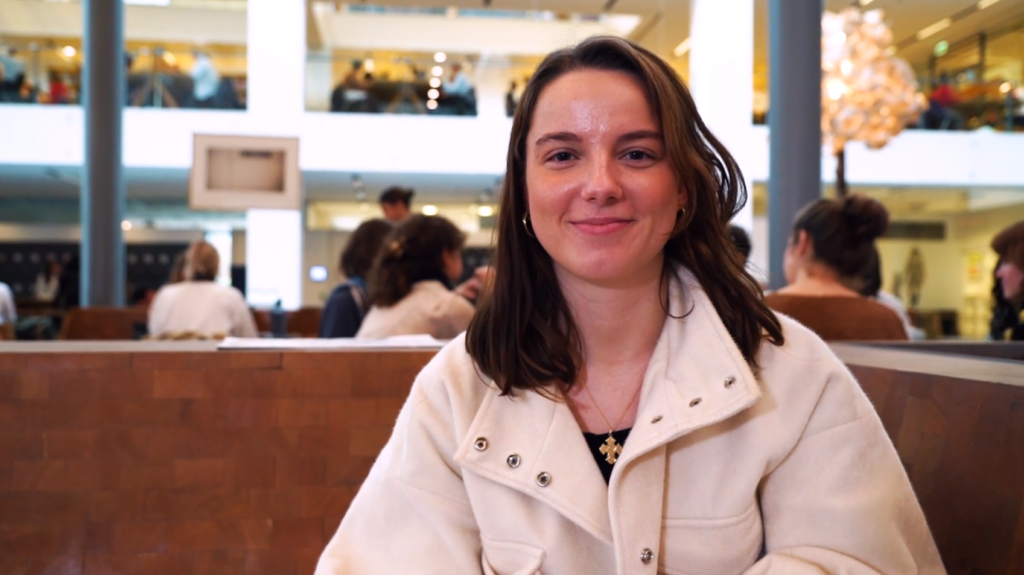The Student Counseling and Howdy were part of the government’s Covid-19 restart package in the autumn of 2021. The goal of the collaboration was to ensure better wellbeing among students, and now there have been great conclusions of the wellbeing efforts from Denmark’s Evaluation Institute – EVA.
Anxiety, stress, and loneliness. One in five students is in the risk zone of needing help and eventually ending up in psychiatry – but now an experiment by The Student Counseling and Howdy shows that ongoing wellbeing measurements and calls from counselors can help.
7 out of 10 students find that a new response team from The Student Counseling and ongoing wellbeing measurements from Howdy helps them: The process involves students getting a profile in Howdy, which continuously asks five scientific questions about their mood, sleep and other factors that can measure their wellbeing – and if needed – they get a call from Student Counseling with an offer to help.
“Far too many students are stressed and unhappy, and it has only gotten worse after Corona,” says director of Student Counseling, Thomas Braun, who therefore initiated the psychological response team.
“Many students find it difficult to understand their situation and ask for help. We have therefore built up a response team of psychologists who, via the app Howdy, can help the students get back on track.”
5,000 students from the following educational institutions: The Design School in Kolding, SIMAC – the maritime education, KP – Copenhagen University of Applied Sciences, Dania, and the Aarhus School of Architecture have participated, and when asked directly, 7 out of 10 students answer that the counseling has been useful. 75% of the students estimate that they needed counseling, even though they may not have been fully aware of it / lacked the resources to seek qualified help.
And according to Denmark’s Evaluation Institute – EVA, there are clear signs that the follow-up counseling sessions in continuation of answers in the Howdy app have a positive effect on the students’ wellbeing. Among other things, because the questions help make the students aware of their own wellbeing, as one of the students expressed in the report in anonymized form: “It´s become easier to take care of yourself when things in life gets a little difficult.”
It works!
Denmark’s Evaluation Institute – EVA’s report indicates that the effect of this collaboration and response team is significant:
- 71% of the students agree or strongly agree that the counseling has been useful
- 75% agree or strongly agree that they needed to talk to a counsellor
- 90% agree or strongly agree that they felt understood by the counsellor
- In 76% of the interviews, the counsellors estimated that the students needed counseling
“There are signs that the counseling sessions improve the wellbeing of students in distress, and both counselors and students have a positive experience of the effort. At the same time, the effort is relatively inexpensive, and addresses the significant challenge of breaking down barriers to seek help among students in distress,” says Bjarke T. Hartkopf, area manager for higher education at EVA.
Download EVA’s report with evaluation of the effort here.
Student Counseling’s efforts are both “promising and relatively cheap”, and therefore EVA recommends that the potential should investigated more closely, which pleases Student Counseling’s director Thomas Braun:
“We can see that it works with outreach telephone advice. In particular, we find that it has been possible to get in touch with a group of students in severe distress who do not seek help via the existing channels. We know that there is a particularly vulnerable group here with an increased risk of developing mental disorders, and we therefore see great perspectives in getting hold of them as relatively early as has been possible here,” says Thomas Braun.
CEO of Howdy, Rasmus Hartung, is also pleased with the great conclusions of the efforts: “Here we have a fantastic example of a successful collaboration between a public and a private company, where we have created some fantastic results, which can save society and the healthcare system for billions – not to mention saving lives.”
Today, several independent studies indicate that 20% of Danish students in higher education – around 50,000 – are unhappy at a level that increases the risk of developing a psychiatric diagnosis.


